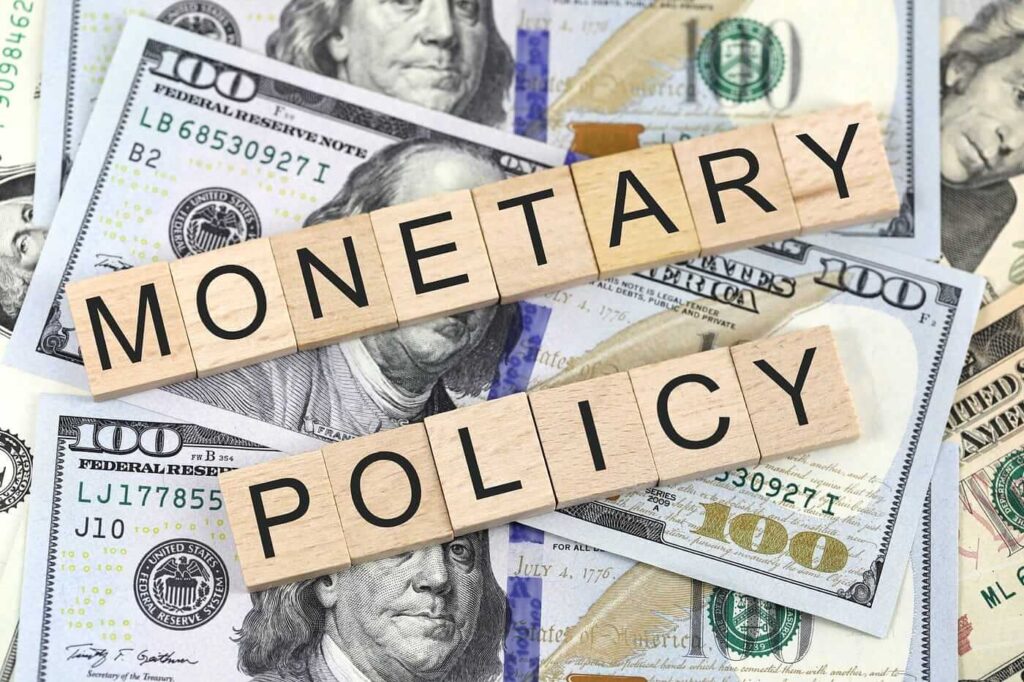What’s The Role Of Central Banks In Monetary Policy Decisions?
In any official country, central banks are one of the most important determining factors for maintaining economic functioning and financial stability. Central banks are institutions where the state’s monetary policies are implemented and released to the market. Central Banks in monetary policy have a significant role in optimizing economies during times of crisis.
For example, in England, the Central Bank implements interest rate decisions to keep inflation under control, and thus the financial stability that has continued in England for many years is preserved.
For example, we can recall the 2008 FED crisis in the USA. In the FED crisis, the US central bank managed to overcome this crisis, which had negative global consequences for everyone, by trying to revive the markets by reducing interest rates.
The smooth functioning of the economy is possible with the correct and strategic implementation of central bank monetary policies, as well as elements such as production, trade, imports, and exports.
Monetary policies are determined by central banks. Although there are different schools and practices in some countries, combating negative situations such as unemployment and inflation is more successful when economic predictions are used as a basis.
Although central banks in monetary policy are recommended to act as lenders of last resort during financial instability, such pictures are seen in some countries.
How Do Central Banks Influence Monetary Policy Decisions?

Central banks have a direct impact on monetary policy decisions. In today’s digital world, the role of central banks may vary in different countries with different levels of development.
However, in almost all of today’s modern and developed countries, central banks make monetary policy decisions democratically and develop strategies by economic science.
Central banks’ monetary policy decisions basically determine the money supply and interest rates. They can decrease or increase the money supply according to inflation figures and unemployment statistics.
The autonomy of central banks in monetary policy allows them to be science-oriented. This increases the value of local currencies in international markets, preventing possible crises in advance.
The main purpose of the central banks is to ensure price stability. By price stability, we mean an inflation rate that is low enough not to require consideration in economic decisions.
The Bank directly determines the monetary policy it will implement and the instruments it will use for this purpose, in other words, it has instrument independence.
While the world was experiencing a global pandemic in 2020, the European Central Bank, or ECB for short, supported bond purchases to increase market liquidity. In this way, European Union countries were less affected by the financial crisis during the pandemic.
What Are The Key Responsibilities Of Central Banks In Monetary Policy?
The most basic responsibility of central banks in monetary policy is to maintain price stability in the markets, increase employment, and prevent potential crises in advance. These basic responsibilities are the rights that every citizen in the country must protect.
Statistics such as production potential, import-export rates, unemployment rate, and inflation in a country are monitored by central bank teams consisting of sufficient experts in the field using basic and technical analysis methods. Then, the strategies indicated by these rates are implemented through monetary policies.
The basic responsibilities of central banks in monetary policy can be listed as follows:
- Maintaining price stability
- Bringing inflation and deflation rates to an optimum balance
- Supporting employment projects
- Preventing crises in advance
- Making scientifically based decisions and being free from political pressures
If I need to give a good example of this, I can mention Japan. The Bank of Japan (BOJ) has applied lower interest rates than other developed countries for many years to prevent deflation quickly. This is an example of a monetary policy taken by the central bank.
How Do Central Banks Use Interest Rates To Shape Monetary Policy?
The most decisive influence on central banks’ monetary policy decisions is interest rates. Today, in many countries, when inflation increases, the central bank of that country proposes to increase interest rates the following year. Local government units and central banks increase interest rates with a joint practice, aiming to reduce inflation in this way.
In some countries, in such crises, the aim is to optimize the market not only with interest rates but also with money supply. I can mention the FED practices in the 1980s as the best example of central banks shaping monetary policies through interest rates.
The effect of central banks in monetary policy extends to setting interest rates to balance inflation. Inflation rates in the US had increased compared to previous years during these years.
To control high inflation and optimize the markets, the US central bank raised interest rates to around 20%. Although it may seem like a radical strategy at first glance, it was an appropriate strategy considering the special conditions of the period.
What Tools Do Central Banks Use To Implement Monetary Policy?
The tools utilized by central banks in monetary policy cover some open market operations and reserve requirements. The most common answers to the question of which tools central banks implement their strategies when determining monetary policy can be listed as follows:
- Interest rates
- Open market operations
- Required reserve ratios
In addition, it is observed that central banks intervene in the markets by using foreign exchange reserves in special economic market conditions in some countries.
In recent years, developing technology and increasing digitalization have made it easier for central banks to implement monetary policies.
Thanks to these tools, many developed countries analyze market conditions with a higher success rate by using scientifically based methods.
In recent years, central banks have been making more successful plans through digital solutions such as advanced computers and artificial intelligence tools. We can predict that the world of the future will be full of highly competitive markets.
How Do Central Banks Balance Inflation And Economic Growth In Monetary Policy?

One of the main responsibilities of central banks is to balance inflation and economic growth. Interest rates are the most frequently used tools to ensure this optimization.
In 2022, many countries around the world increased interest rates to keep inflation under control, while stopping this rate at the optimum point where it would not hinder economic growth.
This optimum interest rate can vary depending on local conditions. Central banks in monetary policy strategies often aim to balance financial growth.
Central banks that can provide this maintain the financial stability of their countries. If interest rates in a country increase too much to prevent inflation, this will cause economic growth to slow down after a certain period.
Therefore, scientifically calculated interest rates should be applied to optimize and balance both inflation and economic growth.
The way central banks in monetary policy are presented to the public is very important to manage market expectations. To ensure this, central banks need to make independent decisions from local government units and propose implementations in cooperation.
What Is The Impact Of Central Bank Independence On Monetary Policy Decisions?
The independence of the central bank is a very important case in today’s democratic and modern world.
When the functioning of the central banks of today’s developed countries is closely examined, it is seen that the central banks of developed countries such as America, England, and China are independent and therefore have science-based practices.
Central banks in monetary policy should analyze macroeconomic indicators instead of political pressures to predict future trends.
In addition to these countries, Germany has also been showing successful results in market rates such as unemployment and inflation for years thanks to having an independent central bank.
Independent central banks should implement the strategies suggested by economic science without being affected by political pressures. In this way, more successful economic management is provided in the medium and long term.
In Asian countries that have not been able to be independent in monetary policy decisions, unemployment and inflation, which have been ongoing for many years, have not been reduced.
However, if there were central bank practices independent of political pressures in these countries, they would at least decrease, if not completely disappear.
The role of central banks in monetary policy is to establish new systems for the safe and rapid transfer and settlement of funds and securities, to ensure the uninterrupted operation of the systems that have been established and will be established, to carry out their supervision and to make the necessary arrangements.
How Do Central Banks Respond To Economic Crises Through Monetary Policy?
The world has experienced many global economic crises in the past, and central banks of different countries have reacted differently. Central banks of developed countries prefer to implement expansionary monetary policies during crisis periods, regardless of political authorities.
Central Banks in monetary policy have a straight impact on local currency value and exchange rates. For example, in the global crisis of 2008, the FED lowered interest rates significantly. Many of the monetary expansion programs at that time were supported by central banks.
Central banks have a great responsibility in determining monetary policies during such crisis periods. Therefore, they have to implement the most appropriate strategies for market conditions analyzed with scientific methods.
Generally, lowering interest rates is the most common solution. In 2020, the pandemic period also created financially unexpected market conditions for almost every country, and the central banks of many countries started to optimize the market by lowering interest rates.
What Role Does The Federal Reserve Play In Global Monetary Policy?
The Federal Reserve is an important institution not only for the United States economy but also for the entire world.
Because global markets are directly affected by the monetary policies of the Federal Reserve, which is the central bank of the United States. If the FED increases interest rates, developing countries can transfer their existing capital abroad.
The Federal Reserve has the greatest influence in determining global monetary policy, except for extraordinary circumstances. The monetary policies of the American central bank directly affect all market conditions. Central Banks in monetary policy provide liquidity in all banking systems.
Therefore, they need to offer monetary policies that will optimize market conditions by considering the welfare of the entire world, independent of the American political authority.
In short, I can say the following sentence: “If things are not going well at the Federal Reserve, they will not go well in the entire world.”
How Do Central Banks Shape Foreign Exchange Rates Through Monetary Policy?

Central banks have the ability to directly affect exchange rates. They usually do this by using foreign exchange reserves and changing interest rates according to market conditions.
For example, the Swiss National Bank has made large-scale foreign exchange purchases to protect the local currency, the Swiss franc, from possible appreciation. In this way, they have protected it from unwanted fluctuations in exchange rates.
Central banks’ monetary policies provide the opportunity to prevent fluctuations in exchange rates and adverse market conditions in advance. A developed country’s local currency is usually also valuable in global markets.
One of the most effective ways to sustain this is through decisions made by the central bank by economic science. Decisions that directly affect exchange rates, such as reducing or increasing interest rates, must be implemented carefully according to specific market conditions.
What Are The Future Trends For Central Banks In Shaping Monetary Policy?
It is a matter of curiosity whether central banks will be as effective in influencing monetary policies in the future as they are today. The real impact of central banks in monetary policy can be tested by their ability to ensure price stability.
Especially in recent years, the increase in decentralized financial ecosystems, the spread of digital currencies, and new events such as climate change are transforming central banks into multi-faceted institutions instead of institutions that only set interest rates.
In recent years, thousands of users on social media platforms have talked about the digital euro studies developed by the European Central Bank. Central banks in monetary policy often have the difficulty of addressing both inflation and unemployment and have to keep this in balance.
In the future, the increase in digital solutions, the spread of digital currencies in almost every country, and the compliance of regulations with digital solutions will reduce our dependence on central banks’ monetary policies.
Globalization, accelerated by digitalization, is gradually reducing the competence of local authority units and central banks. However, our dependence on central banks’ monetary policies will not disappear in the short term.
See you in the next post,
Anil UZUN
